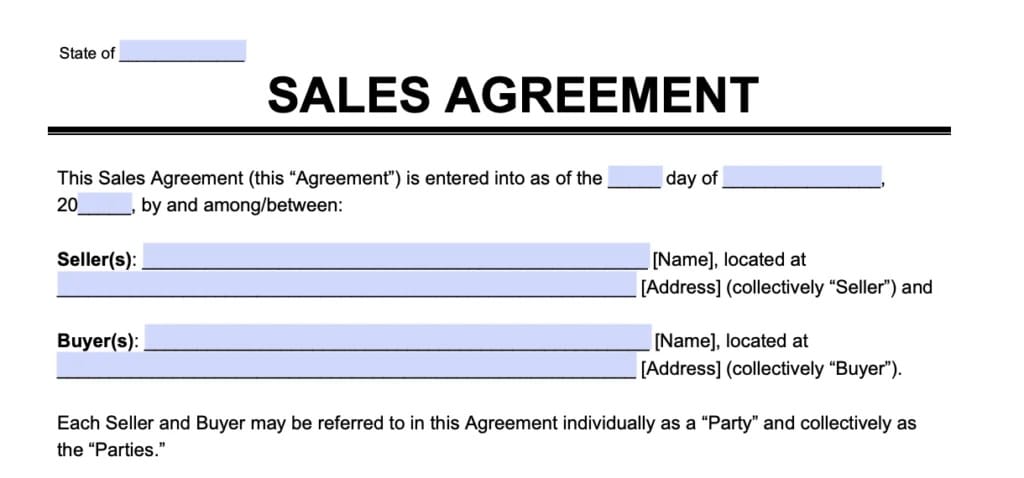Navigating Business Contracts: Legal Protection for Your Company
In business, agreements in the form of contracts form the foundation of most professional dealings. They define the terms, conditions, and obligations that govern agreements between parties, covering everything from sales and purchases to services and partnerships. Navigating business contracts effectively is essential for ensuring legal protection for your company and minimizing risks. This article explores the importance of business contracts, common pitfalls to avoid, and how legal services, including contract consulting and the expertise of a business contract lawyer, can help safeguard your interests.
The Importance of Business Contracts
Business contracts provide clarity and certainty in commercial relationships. They set expectations for the parties involved and serve as legal documents that can be relied upon in the event of disputes. The key purposes of business contracts include:
- Defining Obligations: Contracts outline the duties and responsibilities of each party, helping to avoid misunderstandings and disputes.
- Establishing Legal Protections: Well-drafted contracts can protect your business from legal liabilities, ensuring you have recourse if a party fails to meet its obligations.
- Formalizing Agreements: Contracts provide a written record of agreements, which can be essential for future reference and legal enforcement.
- Facilitating Negotiations: Clear contracts facilitate negotiations by establishing terms that can be discussed and altered as needed.
- Mitigating Risks: Identifying potential risks and addressing them in contracts helps to reduce the likelihood of disputes arising down the line.

Common Types of Business Contracts
Businesses encounter a variety of contracts, each serving specific purposes. Understanding these common types can help you better navigate the contractual landscape:
1. Sales Agreements
Sales agreements are contracts between a buyer and a seller that outline the terms of a sale, including price, delivery, and payment terms. These contracts are essential for protecting the interests of both parties and ensuring a clear understanding of the transaction.

2. Service Agreements
Service agreements outline the terms under which one party agrees to provide services to another. These contracts typically include details such as the scope of work, responsibilities, timelines, and payment terms.
3. Non-Disclosure Agreements (NDAs)
NDAs are contracts designed to protect confidential information shared between parties. They ensure that sensitive information remains private and cannot be disclosed to third parties, which is especially important when discussing proprietary information or trade secrets.
4. Partnership Agreements
Partnership agreements outline the terms of a partnership between two or more businesses or individuals. These agreements typically cover profit sharing, responsibilities, decision-making processes, and exit strategies for partners.
5. Employment Contracts
An employment contract is a formal agreement between an employer and an employee, detailing duties, salary, benefits, and the conditions under which the employment may end. Such contracts ensure both parties’ rights are safeguarded and mutual expectations are clearly defined.
Common Pitfalls in Business Contracts
When navigating business contracts, several common pitfalls can lead to misunderstandings and legal issues:
1. Ambiguous Language
Unclear or ambiguous language in contracts can lead to differing interpretations, creating disputes down the line. It’s essential to use precise, clear language that accurately reflects the intentions of all parties.

2. Failure to Address Key Terms
Neglecting to include important terms—such as payment schedules, delivery dates, or scopes of work—can result in confusion and disagreements. Ensure that all essential aspects are clearly articulated in the contract.
3. Not Considering Contingencies
Contracts should account for potential contingencies or unforeseen events that may affect performance. Including provisions for handling delays, breaches, or force majeure events can mitigate risks.
4. Ignoring Local Laws and Regulations
Laws governing contracts can vary by jurisdiction, and failing to consider local legal requirements can invalidate a contract. Consulting a legal professional ensures compliance with applicable laws.
5. Not Having Contracts Reviewed by a Professional
Many businesses attempt to draft or modify contracts without consulting a legal professional. This can lead to overlooked issues or poorly structured agreements. Engaging a business contract lawyer can help ensure that contracts are properly drafted and vetted.
Role of Legal Services in Contract Navigation
Navigating business contracts effectively requires a thorough understanding of legal principles and best practices. Legal services play a pivotal role in safeguarding your business’s interests:
1. Contract Consulting
Contract consulting services provide businesses with guidance on drafting, reviewing, and negotiating contracts. A contract consultant can assist with:
- Drafting Contracts: Ensuring contracts are clear, comprehensive, and tailored to your specific needs.
- Reviewing Existing Contracts: Evaluating existing agreements for potential risks or ambiguities and suggesting revisions.
- Negotiation Support: Providing advice and strategies during contract negotiations to help achieve favorable terms.

2. Engaging a Business Contract Lawyer
A business contract lawyer specializes in contract law and can provide invaluable assistance, including:
- Legal Expertise: Understanding the intricacies of contract law and how it applies to your specific circumstances.
- Risk Assessment: Identifying potential legal risks and advising on ways to mitigate them before finalizing contracts.
- Dispute Resolution: Assisting in resolving disputes that may arise during the contract performance phase, including mediation or litigation if necessary.
- Compliance Guidance: Ensuring that contracts adhere to relevant laws and regulations, minimizing the risk of legal complications.
Best Practices for Navigating Business Contracts
To effectively navigate business contracts and leverage legal services, consider adopting the following best practices:
1. Involve Legal Professionals Early
Engaging a business contract lawyer early in the drafting process can ensure that your contracts are legally sound and tailored to your needs.
2. Maintain Clear Communication
Keep transparent and ongoing communication with all contractual parties to promote shared understanding and alignment on the agreed terms.
3. Use Standard Templates with Customization
While using standard templates for common contracts can save time, customizing them to reflect specific needs is essential to avoid generic language and common pitfalls.
4. Keep Records of All Agreements
Maintain detailed records of all contracts, amendments, and communications related to agreements. This documentation can be invaluable if disputes arise.
5. Regularly Review and Update Contracts
Contracts may need to evolve as business circumstances change. Periodically reviewing and updating contracts ensures they remain relevant and effective.
Conclusion
Navigating business contracts is a critical aspect of managing a successful company. Contracts not only protect your interests but also provide clarity and structure to your commercial relationships. By leveraging legal services, including contract consulting and engaging a business contract lawyer, you can effectively navigate the complexities of contracts and mitigate risks. Adopting best practices and involving legal professionals in the process can help ensure that your contracts serve their intended purpose—protecting your company and fostering successful business relationships. Ultimately, understanding the nuances of contract law will empower you to create valuable agreements that contribute to the long-term success of your business.
